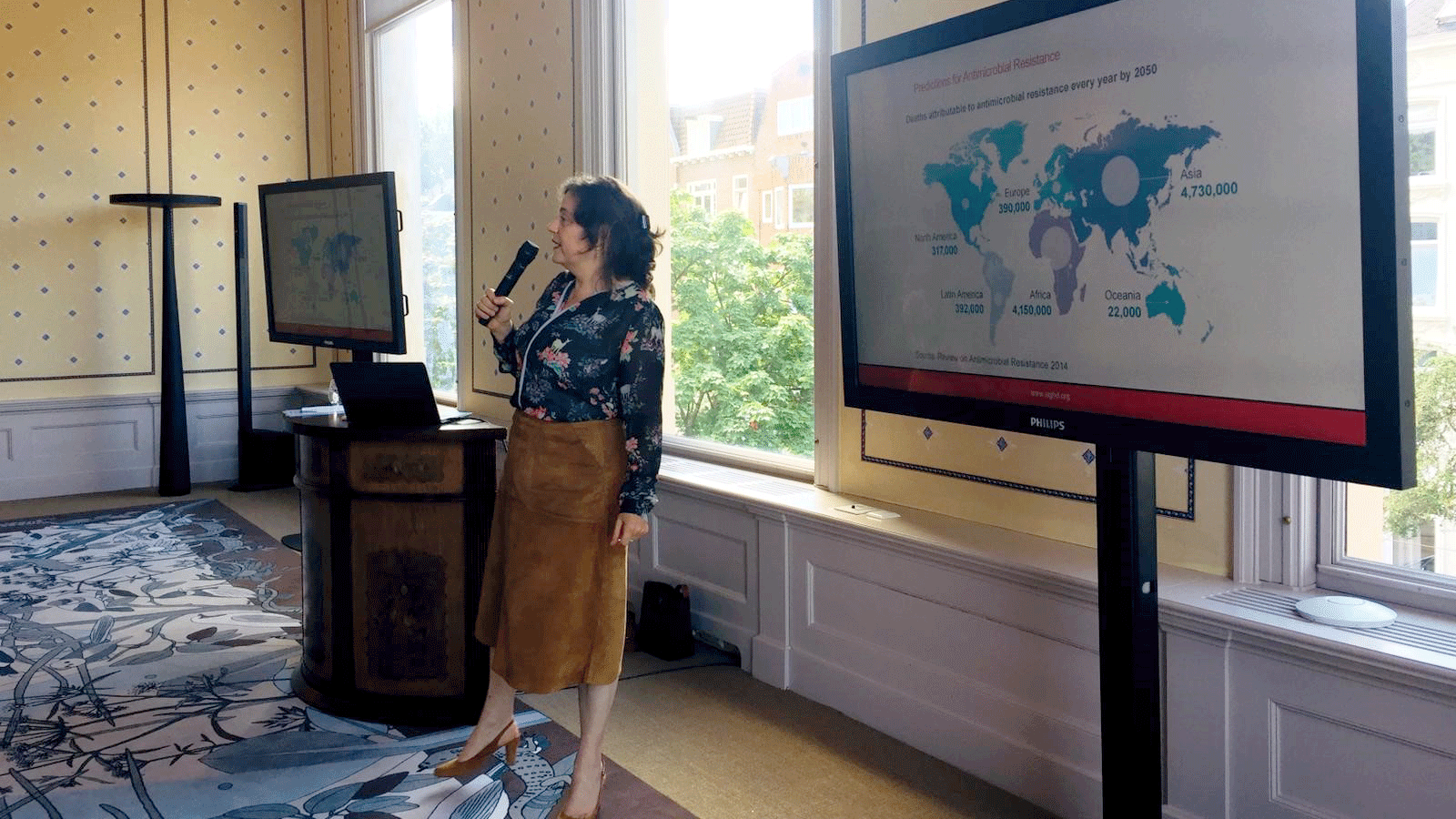
21 Jun Call to Action for awareness on AMR
The Amsterdam Institute for Global Health and Development is one of the organizations that signed the Call to Action for awareness on antimicrobial resistance (AMR) in the Netherlands on June 20. Prof. Constance Schultsz, Academic Staff at AIGHD, was part of the announcement, which occurred during a side event of the ministerial AMR conference in Artis Micropia (Amsterdam). The call to action is below.
Antimicrobial resistance (AMR) is conceivably the biggest challenge facing the 21st century. Early predictions estimate that by 2050, 10 million deaths per year could occur as a result of AMR. This will undoubtedly affect us all.
Micro-organisms (bacteria, fungi and viruses) develop drug resistance when exposed to antimicrobial agents. Incorrect use speeds up that process. Drug resistant organisms can infect and harm all living matter: people, animals and others.
The ever increasing mobility of people, animals and food (and therefore of micro-organisms), further accelerates the spread of antimicrobial resistant micro-organisms. In the Netherlands, MRSA infections regularly make the news. In countries where AMR is at a higher level than in the Netherlands, including other European countries, infections often occur that can no longer be treated with antibiotics.
The Netherlands is developing and scaling up methods to reduce the unnecessary use of antibiotics and thereby halt the spread of resistant micro-organisms. For example at GPs, in hospitals and in the veterinary sector. This enables us to keep the development of resistance under control in the Netherlands. New therapies are also being developed by using helpful micro-organisms that fight harmful drug resistant ones. Policy makers, academics and the private sector are working together to shape the (inter) national AMR agenda.
In summary, much is already being done. The involvement of the Dutch population however, must improve. Sooner or later everyone will face the dangers of increasing AMR. At the same time, every individual makes choices that influence the development of resistance and the spread of drug resistant micro-organisms, be it via sensible handling of antibiotics and antibiotic residues, safe sex or food choices. Every citizen has a responsibility: everyone can actively contribute to the prevention of both the development and spread of AMR.
Public awareness plus a stronger connection between science, policy and society, at both national and international level, are necessary to respond more effectively to AMR.
A group of civil society organizations, engaged in fighting antimicrobial resistance from their own field of expertise, invite other players to join forces.
The undersigned initiators call on the Dutch public and civil society to take action to increase awareness of AMR in the Netherlands and to further strengthen the connection between science, policy and society.
Initiated by:
- Jasper Buikx
ARTIS-Micropia - Constance Schultsz
Amsterdam Institute for Global Health & Development (AIGHD) - Tobias Rinke de Wit
Amsterdam Institute for Global Health & Development (AIGHD) - Kitty van Weezenbeek
KNCV Tuberculosis Foundation - Merel Langelaar
Royal Dutch Society for Veterinary Medicine (KNMvD) - Ann Vossen
Dutch Association for Medical Microbiology (NVMM) - Mark Vermeulen
Soa Aids Nederland - Mark de Boer
Dutch Working Party on Antibiotic Policy (SWAB) - Jaap Wagenaar
Faculty of Veterinary Medicine Utrecht University - Ludo Hellebrekers
Wageningen Bioveterinary Research - Henk Smid
The Netherlands Organisation for Health Research and Development (ZonMw)
Photo credit: © Anika Snel KNCV
